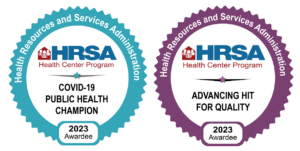What to Expect When You Stop ‘The Pill’
Despite the development of contraceptives over the years, the most popular form of birth control remains “the pill.” Some form of the birth control pill is used by roughly 16 percent of all women who use contraceptives. The birth control pill has a number of benefits other than preventing pregnancy when a woman isn’t ready for a child. The medication is often prescribed for women who suffer from heavy painful menstrual cycles and in some instances has been used to help treat acne. Here’s what you can expect from your body (in addition to info that dispels a couple of myths).
Does My Body Need A “Break” From The Pill?
For women who have taken a birth control pill for years without health challenges or side effects, there is no medical reason your body needs a “break” from the pill. Are you stopping “just because”? You need to know that the “idea” that your body needs to come off the pill occasionally isn’t true. Generally healthy, non-smokers are typically ok to continue taking the pill through menopause.
Generally speaking, one rare side effect of the birth control pill is an increased risk of blood clots. The risk is very low – roughly 3 of every 100,000 women – and is highest in the first few months of use, decreasing thereafter. It typically takes a woman’s body about three months to get use to the pill and about the same amount of time to adjust when you stop the pill.
When You Stop The Pill
When you stop taking a birth control pill, it typically takes 4 – 6 weeks before your menstrual cycle returns. If after three months your period has not occurred, have a conversation with your doctor.
The majority of women won’t feel a significant difference in their bodies when stopping the pill, but for those who suffered from painful monthly cycles, the pain and heaviness will likely return.
The pill causes decreased levels of B-vitamins and folic acid in your body, so for women coming off the pill to try to conceive, it’s recommended you begin a pre-natal vitamin about 3 to 6 months before you attempt to get pregnant to prep your body for the nutrients it will need to support two.
Discontinuing the pill also means your testosterone levels will increase. This may cause acne or a few extra facial hairs that you wouldn’t normally experience on the pill. For other women, hair loss my occur, but this usually stop within 3 to 6 months.
Your libido generally increases when you stop the pill and because ovulation will now take place, you may notice mid-cycle pain. If the pain doesn’t subside, however, pay your doctor a visit.
If the pill is working well for you, there’s no reason to change your routine. If you’re making life changes, and have decided to stop contraceptives, your cycle should balance within three months.
See Your Gynecologist
Make sure to make an appointment with your gynecologist before making any changes. The gynecologist can record the changes and help monitor the results as needed. Looking for a gynecologist close by? Give us a call. We offer OBGYN services.


